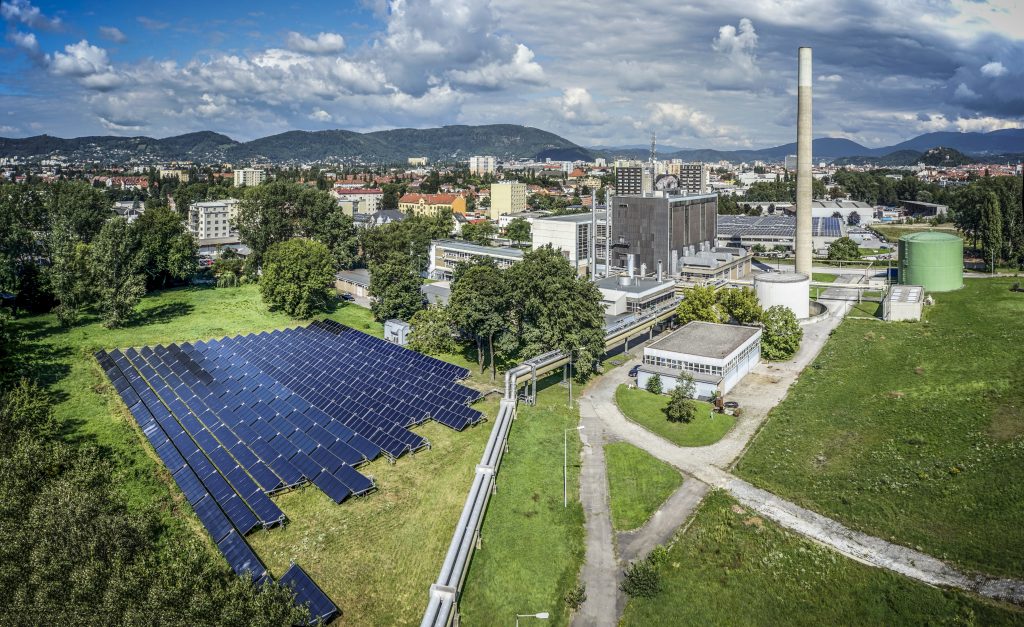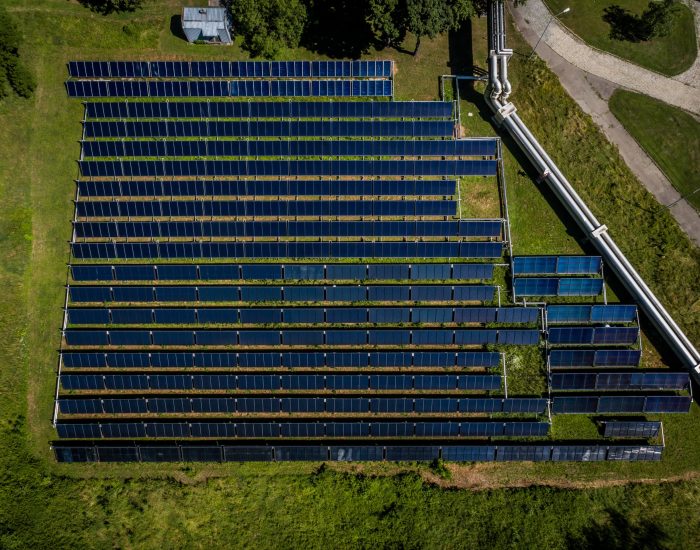The HarvestIT Project

Large-scale solar thermal plants
Large-scale solar thermal plants
(> 500m² collector area / 350kW power) are a cost-effective technology for providing renewable heat. The market has experienced rapid growth in recent years. The most common applications are heat supply to district heating and local heating networks and industrial process heat.
Boundary conditions
The construction of new plants requires a high initial investment, which is repaid over the operating life (25 years and more) by selling of the generated solar energy. Thus, the technology is only economically attractive for customers and investors if permanently high operating quality is achieved.
Increasing availability of data and digitalization technologies offer the opportunity to take the monitoring of large-scale solar plants into the digital future.

Challenges
Although large-scale solar thermal plants are a mature and reliable technology to provide renewable heat, the central question “How optimal does a solar system work?” is difficult to answer on a detailed level even for solar experts. Performance and solar yield are a complex interplay of components, system design, control and stochastic influences of weather and customer-side load conditions.
- Precise monitoring is time-consuming and expensive.
- Slow degradations and efficiency losses in the percentage range are hard to detected with available monitoring approaches, and decision support for maintenance work (predictive maintenance) is missing.
- Collector manufacturers face the problem that their collectors are lab-tested according to standards, but that investors and customers also demand performance and yield proofs under field conditions.
- Currently, no directly usable dynamic test procedure for collector arrays, either as a commercial or open-source tool, is available on the market.
Goals
1. Development of an open-source software
► The project focuses on developing an open-source software for a comprehensive performance and yield analysis of large-scale solar thermal plants by means of an automated test procedure. The test procedure is built on recent research projects such as MeQuSo.
► The procedure allows to determine characteristic physical parameters, similar to what ISO 9806 does for single collectors under laboratory conditions, but for fully dynamic plant conditions of large plants and without the need for special test sequences.
► Effects like soiling, degradation or efficiency losses can be detected with comprehensible KPIs and parameters and clearly distinguished from the respective operating conditions.
2. Demonstration of praxis relevance
► Industry partners demonstrate the usefulness of the method by applying it to test plants at market.
3. Development of digital products and services
► Integration into existing monitoring tools and business processes will enable companies to offer new services such as operational optimization, and to quantify and sell implementation measures.
4. Effective involvement of stakeholders
► The project addresses the key stakeholders of large-scale solar thermal systems: The professionally managed Open Innovation process is designed to engage stakeholders in the development process and align the solution with the entire industry.
Work Packages
WP 1
Project management
(Lead: AEE INTEC)
WP 2
Open innovation process and dissemination
(Lead: SOLID)
This work package deals with the Open Innovation process, identifying relevant stakeholders, allowing them to bring in their requirements and participate in the development process. Check out Open Innovation for updates.
WP 3
Method and software development
(Lead: AEE INTEC)
This work package contains the core methodological work and software implementation of the D-CAT method, including configuration of new plants, data management, model development and parameter estimation.
WP 4
Application and integration for plant monitoring
(Lead: GASOKOL)
The D-CAT method is applied to multiple test plants for validation purposes and to demonstrate its practical usefulness for plant monitoring.
WP 5
Development of digital products and business models
(Lead: SOLID)
This work packages explores the market potential for new services and products based on the developed Open Source Tool.
Administrative Information
Project name
HarvestIT - Advanced monitoring of large-scale solar thermal plants with open-source software solution (FFG project number: FO999887648)
Project manager
AEE – Institute of Sustainable Technologies
RTI initiative
Fast Track Digital 1st call
Funding body
Start
November 2021
Project duration
24 months
Total costs
704.979 €
Total funding
422.986 €